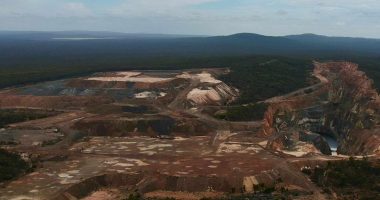Fouad Haidar:
Tensions are continuing to simmer in the Middle East since the first Hamas attack in Israel on October 7. Now, trouble is spilling over the borders into multiple countries in the region. Conditions are particularly rough in the Red Sea, where Houthi pirates from Yemen have made key global trade routes almost impassable for ships linked to Israel or its allies.
The impacts of this will be far-reaching. As US-based business and finance analyst Tariq Al-Rifai is about to explain to us. Welcome on board again Tariq, it’s great to have you.
How do you predict the Red Sea attacks will impact on Australian businesses and companies?
Tariq Al Rifai:
Well, we’re already starting to see the impacts on two aspects. Number one, we’re starting to see the rerouting of some ships to avoid the Suez Canal. And we’re also starting to see shipping rates increase across the board. This is global. Those two things are already impacting the market.
Fouad Haidar:
What supply chains and business sectors in the local Australian market will be disrupted?
Tariq Al Rifai:
Ironically, if you look at the imports and exports into Australia, the majority of the exports, 83 per cent, go to the Asian market and the imports, roughly 65 per cent come from the Asian market. So what we’re really talking about that will affect the Australian market is the European market. European exports and imports. So at the moment, Australia imports approximately 18 per cent from Europe and that portion is what we’re expecting to see an increase in prices and possibly delays due to some supply chain issues.
Fouad Haidar:
All in all, how much could this bump up shipping costs here in Australia for that 18 per cent sector?
Tariq Al-Rifai:
Well, already seeing increases in these prices anywhere from 5 to 10% on a sustainable basis. However, it could increase more if we continue to see more delays and more rerouting issues.
Fouad Haidar:
What goods are we talking about here just so we make it clear for people watching?
Tariq Al-Rifai:
It’s primarily equipment, machinery, high-technology goods and foodstuffs.
Fouad Haidar:
The conflict of Israel in Gaza and the tensions across the Middle East. We keep hearing about stories unfolding day by day. What does this mean for investors at the moment?
Tariq Al-Rifai:
The biggest issue is a return of inflation. We’ve been dealing with record-high inflation across the board. And in Australia, you know, we’ve seen the highest inflation since the late 1980s. Finally, it’s been coming down over the past year. We could see a resurgence of full inflation if this conflict continues in the longer term. So that’s the biggest worry for investors and obviously the biggest worry for central bankers as well.
Fouad Haidar:
There are little stories that are unfolding every single day. We hear about bombings happening here and there, and countries that are retaliating. Allies form together to contain the conflict. There’s just so much happening in the past three months. What do you believe will happen next?
Tariq Al-Rifai:
We’re seeing a lot of, you know, discussions, negotiations, conflict, trying to resolve the issue. However, what you do notice is that the conflict is not resolving itself and it’s actually expanding. Now we’re talking about the United States and its allies attacking, you know, Yemen, etc., wanting to pay attention to it. And I think what investors are very well aware of is this conflict is escalating. Will it continue to escalate rapidly? Will it be contained in those two areas right now? This right now is a big question mark for investors.
Fouad Haidar:
Which we have no answer for.
Tariq Al-Rifai:
Yea. At the moment, we don’t have any answer. But like I said, if you look at the trend, the conflict is escalating, maybe not exploding, but it is definitely escalating.




-1200x645-380x200.jpg)
